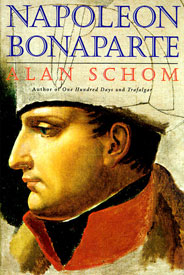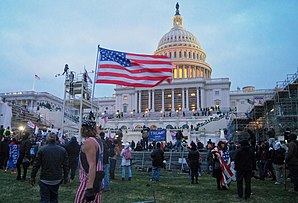Over the past weekend, two legendary quarterbacks who may be outlasting their time in the spotlight went down to defeat with their teams. Neither Aaron Rodgers, of the Green Bay Packers, nor Tom Brady, recently with the Tampa Bay Buccaneers, will be headed to the Super Bowl. At their current salary level and respective ages, there is also the question of whether they can find a National Football League team that wants to spend what is necessary to keep them on the field. If not, retirement may be involuntary for either or both.
Rodgers earned some well-deserved opprobrium when he dishonestly claimed to have been vaccinated, even though he was not, putting his team and others at risk because of his own arrogance. The NFL probably buttressed that arrogance with a modest penalty that was largely a slap on the wrist for a man with an eight-figure income. He has enjoyed a secondary stage hawking State Farm insurance, but for superstars, such ads are merely an auxiliary revenue stream. They can, however, last a lifetime. Just ask Joe Namath. For some, there is a new career in sports announcing, a legitimate second career for people like John Madden. Such alternatives require a different set of talents from sports itself, so not everyone can make the transition. Honorably, some athletes have used their celebrity power to advance charitable causes and social justice; LeBron James comes to mind. Endorsements, of course, require little more than lending one’s name to a product or project, a process commonly known as branding. But that does not always put one in the limelight, at least not directly.
That is the question I wish to raise here because the desire for attention is a matter of personal psychology. There is nothing inherently wrong with continuing in a position as long as one is capable. However, there are issues involving personal maturity and perspective that are worth exploring. For example, does your reluctance to step away from the limelight betray the lack of any larger focus in life than simply being the center of attention, or do you have a larger sense of purpose? Conversely, is your determination to remain on stage a function of narcissism or an oversized ego?
Merriam-Webster states that the earliest known use of the acronym FOMO—fear of missing out—dates to 2004. Merriam-Webster defines FOMO as “fear of missing out: fear of not being included in something.” Because I jokingly refer to myself as a “compulsive extrovert,” I can relate somewhat to the idea, which long ago went viral, but emotional and professional maturity must at some point prevail. One cannot be everywhere, and priorities are essential. We can all stop and ask ourselves why something matters. In many if not most cases, we must also ask whether it matters.
I propose that we apply the same logic to what I will now label FOBOTS: the fear of being off the stage. As Merriam-Webster’s definition states, FOMO simply relates to a desire to be included. FOBOTS is about being the center of attention. Much more ego is involved. The maturity equation here is different and far larger. The question is whether the person in the limelight is hogging (or hugging) it because of a deep need to feel important, or has some larger purpose for which he or she is uniquely suited. In the latter category, I would suggest that, while Rev. Dr. Martin Luther King Jr. was frequently in the limelight, it was not often complimentary in his day, he suffered a good deal of withering criticism for taking principled positions on hugely significant issues of human rights, and he was clearly more interested in moving the agenda on civil rights than in self-glorification. He also left behind a very strong bench of independent thinkers in the civil rights movement who have continued to carry the banner long after he was assassinated. Moreover, he was still very young (39) and capable when the assassination occurred. He knew it was a possibility because of the racial hatred and violence that still exists in the United States of America, but there is no evidence that it is the outcome he wanted. No one with his skills and vision wants to be murdered. Such people do want the satisfaction of moving the moral arc of the universe, to use the biblical metaphor. To care about that, they must care about others.
So, who really suffers from FOBOTS? Certainly, plenty of politicians. The sickness today is clearly rampant because the former president, refusing to concede loss in the 2020 election despite an absolute dearth of evidence of voter fraud, cannot abide departing the stage, even when he is harming the prospects of his own Republican party by supporting primary candidates whose agenda is to help Trump exact revenge on his perceived enemies and those who refused to participate in his scheme to overturn the election. In contrast, former President George W. Bush, having served his two terms, virtually disappeared from the public stage and launched a new avocation as a portrait painter. His father, President George H.W. Bush, willingly departed the White House to allow a peaceful transfer of power to President Bill Clinton. And most notably, President Jimmy Carter, who lost re-election to Ronald Reagan, has used his post-presidency to advance a variety of humanitarian causes in a dignified manner consistent with his own Christian principles.
With Trump, however, we have the spectacle of a defeated president who refuses to concede and refuses to honor the results, and simply manufactures false accusations by the wagon load to justify his position. What is best for the country matters little; it is the loss of the limelight, the fear of being off the stage, that dominates his psyche, which was shaped by early successes in life in being able to garner public and media attention as a glamorous son-of-wealth businessman and reality television star. Sorry, Trump followers, there is nothing more there. This is not about your welfare or any agenda that benefits anyone other than Trump himself. It never has been.
If the damage were limited, however, to a continued presence of Trump in the political quarrels of the day, that would be one thing. But the sickness runs deep enough, and the mass paranoia wide enough, to allow him to intimidate hundreds of other Republican politicians who also suffer FOBOTS. The fear of being primaried by a Trump wannabe is so pervasive that almost an entire generation of Republican leadership has lost its moral stature to the point of fearing losing their own smaller stages—as Senators, U.S. Representatives, governors, and now even as Secretary of State in swing states. Only a handful of Republican leaders, notably including Reps. Liz Cheney of Wyoming and Adam Kinzinger of Illinois—are willing to defy him and seek to build the badly needed new leadership that can guide the Republican party out of its moral wilderness. Notably, Kinzinger, while choosing not to run again this year, is launching a new organization to fight what he considers right-wing extremism in the Republican party.
The underlying question of FOBOTS is the emotional intelligence and maturity it takes to realize when it is time to make room for others who can follow in your wake. This requires having had some sense of a larger professional and moral purpose in life. To avoid FOBOTS, it is necessary to think through, in both moral and practical terms, what legacy you wish to leave behind. For many people around the world, that vision is focused on family, on creating opportunities for children, modest goals that do not require oversized egos, and those people should be admired. For the rare few, at various levels of public attention, the public stage is an opportunity to advance a good cause, to elevate humanity, to make life better for others who follow. FOBOTS is an indicator of narcissistic personality disorder.
There is nothing wrong with being in the public spotlight. I have occasionally enjoyed being there myself. But the question always remains: Why are you there, and what larger positive purpose will your presence serve? If you cannot answer that question with honesty and integrity, it may be time to find the exit. Use your time in the shadows to search your soul.
Jim Schwab



